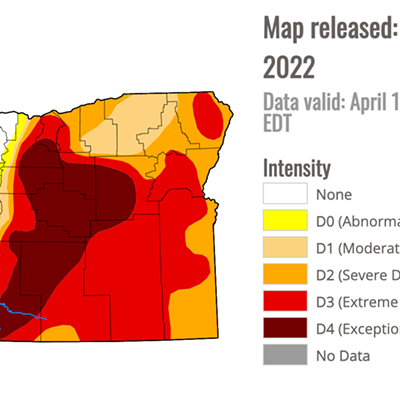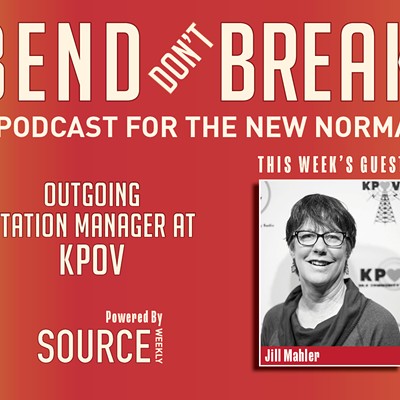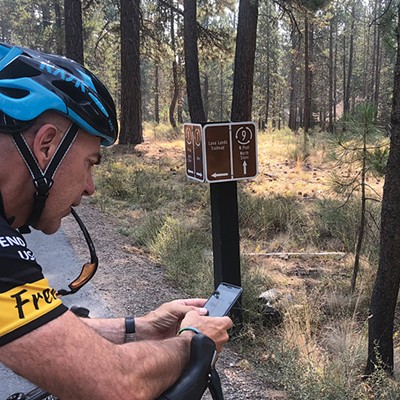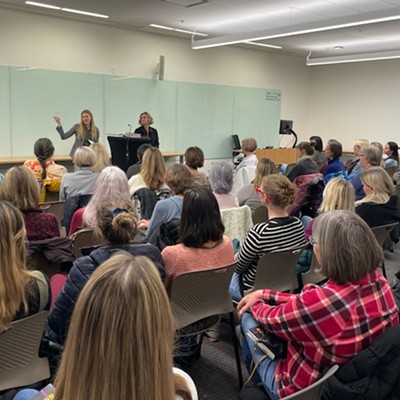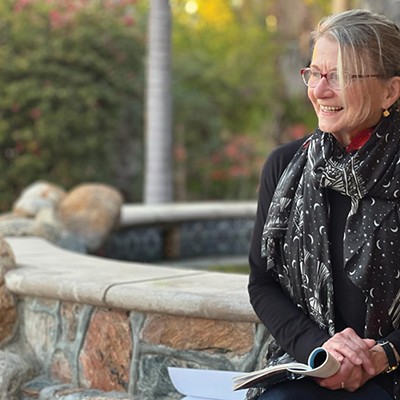A game, a dance, a fight, a song, a way of life.
Just some of the many ways to describe "capoeira," a centuries-old African-Brazilian musical martial art form. Unlike other similar pursuits, this has the feel of a festive South American street party—even though we're inside a North Bend karate studio. That's where you'll find Embauba, the capoeira instructor, enthusiastically leading his twice-weekly, 80-minute class through a complex series of moves.
Complex, that is, to the outside observer, but once learned, Embauba's students make them look natural and fluid. Remember, it's a dance after all.
The music begins upon arrival, with participants, or "capoeiristas," gathering together to play an irresistible blend of drums, tambourines and the ever-present berimbau (a musical "bow" with a single string). Exhilarating and celebratory singing accompanies the music. The capoeiristas take turns belting out verses in Portuguese—both lead vocals and chorus. It's an ecstatic feeling—this sort of "call and response," with participants jumping in when the mood strikes. The singing lasts for about five to 10 minutes before the training begins. During this portion, the class uses recorded music.
Most of this warm-up session is a constant whirl of acrobatic activity. Arms and legs everywhere. Twists, kicks and twirls. Actual physical contact, however, is light and safe. Assertive and deliberate, but not aggressive. Participants work in pairs and with various partners. It's a true workout as the action takes place nonstop.
Constant movement. Constant music.
But don't forget the mental toughness required for all this. "Movements teach one to flow and 'go with it' instead of rigidly resisting in response to another," says Embauba. "And although it appears you have an opponent in front of you during the game, your biggest adversary is yourself—your own perceived limitations and self-doubt."
About an hour into the session, it's time for the actual "roda" to form.
Embauba explains that capoeira happens only in a roda—the circle of people who bring energy to and define the physical space in which two capoeiristas compete. "The game occurs with live music, clapping and energy delivered by the rest of the group.
"Without music, there is no capoeira. The berimbau and other instruments in the orchestra drive the type and speed of the game being played. To be a capoeirista, you also must learn the instruments and traditional songs of capoeira. In time, the goal is to know the meanings of the songs well enough to sing them at appropriate times and in response to something happening in the game."
Here's how it all works: Two "players" square off as the capoeira game, or "jogo," begins. From there, it's an intricate battle in the form of kicks, strikes, defenses, escapes and acrobatics. Physical, yes, but intensely psychological too. Can you outmaneuver your opponent? Can you overcome them with strength? If not, perhaps you can outsmart them with your mind. No matter. Either one can make you a winner. Miscalculate, however, and you could get "taken down."
Like a game of chess, it's best to think a few moves ahead.
Among the strategies? Try to mislead your opponent with your eyes. Keep them guessing. What will you do next? Endless possibilities. Endless outcomes. As Cabeleira, one of this class' participants, or "capoeiristas," describes, "(It's about) staying focused while participating in the music. It's a whole experience."
Is it ever.
"I like the elements of the music and I like the elements of learning and singing in another language," says veteran capoeirista Sarah Allen. "And I enjoy the historical aspects of it because it has such deep culture and history and roots. I've never gotten bored with it." (Capoeira goes back to 16th century Brazil, when slaves used it as a fighting training tool, disguised as a dance.)
It's also an equal opportunity sport in which anyone can take part. Despite the look of it all, there's no need for special training. "It doesn't matter if you are a great player, new to the art or coming back from practice in your earlier years," Embauba says. "Sure, you may be bruised if you don't defend a kick or if you get your foot swept out from under you, but that is how you learn."
Game. Dance. Fight. Song. Way of life. Complex, certainly, but according to Cabeleira, well worth the effort: "It's a lot of fun," he says. "Everybody's super friendly and helpful here—and we definitely have the family vibe going."
Note: The class will offer a two-night "new student workshop" series beginning on May 11.
Details at ucabend.com
Capoeira
63056 Lower Meadow Dr., Bend
Mon. & Thur. 7-8:20pm
541-678-3460
Look for the Calendar Tap feature, in which a Source writer "taps" an event in our calendar and tries it out, in the first issue of each month.



